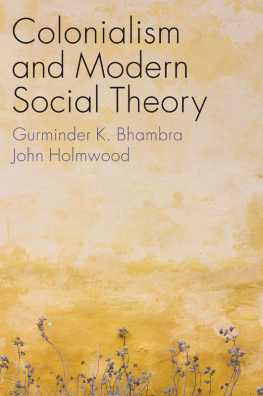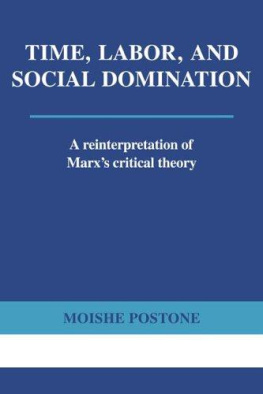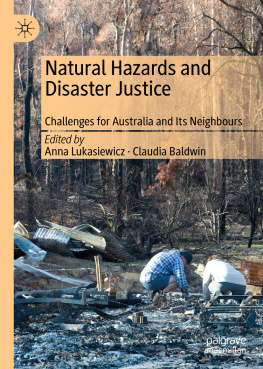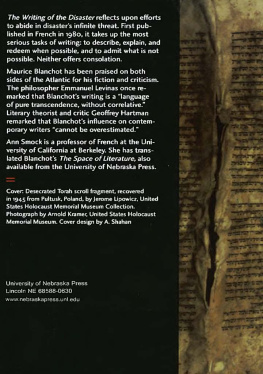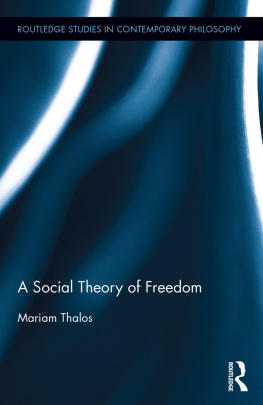
OF DIVINE WARNING
THE RADICAL IMAGINATION SERIES
Edited by Henry A. Giroux and Stanley Aronowitz
Beyond the Spectacle of Terrorism: Global Uncertainty and the Challenge of the New Media, by Henry A. Giroux (2006)
Global Modernity, by Arif Dirlik (2006)
Left Turn: Forging a New Political Future, by Stanley Aronowitz (2006)
Stormy Weather: Katrina and the Politics of Disposability, by Henry A. Giroux (2006)
The Politics of Possibility: Encountering the Radical Imagination, edited by Gary A. Olson and Lynn Worsham (2007)
The University in Chains: Confronting the Military-Industrial-Academic Complex, by Henry A. Giroux (2007)
Guys and Guns Amok: Domestic Terrorism and School Shootings from the Oklahoma City Bombing to the Virginia Tech Massacre, by Douglas Kellner (2008)
Against Schooling: Toward an Education That Matters, by Stanley Aronowitz (2008)
Of Divine Warning: Reading Disaster in the Modern Age, by Jane Anna Gordon and Lewis R. Gordon (2009)
Forthcoming
Theory from the South: Or, How Euro-America Is Evolving Toward Africa, by Jean Comaroff and John L. Comaroff
OF DIVINE WARNING
READING DISASTER IN THE MODERN AGE
JANE ANNA GORDON AND LEWIS R. GORDON
First published 2009 by Paradigm Publishers
Published 2016 by Routledge
2 Park Square, Milton Park, Abingdon, Oxon OX14 4RN
711 Third Avenue, New York, NY 10017, USA
Routledge is an imprint of the Taylor & Francis Group, an informa business
Copyright 2009 by Jane Anna Gordon and Lewis Ricardo Gordon.
All rights reserved. No part of this book may be reprinted or reproduced or utilised in any form or by any electronic, mechanical, or other means, now known or hereafter invented, including photocopying and recording, or in any information storage or retrieval system, without permission in writing from the publishers.
Notice:
Product or corporate names may be trademarks or registered trademarks, and are used only for identification and explanation without intent to infringe.
Library of Congress Cataloging-in-Publication Data
Gordon, Jane Anna ,1976
Of divine warning : reading disaster in the modern age / Jane Anna Gordon and Lewis R. Gordon.
p. cm. (The radical imagination series)
Includes bibliographical references (p. 145) and index.
ISBN 978-1-59451-538-5 (hardcover : alk. paper)
1. Disasters. 2. Disasters in literature. I. Gordon, Lewis R. (Lewis Ricardo), 1962 II. Title.
D24.G754 2009
303.485dc22
2009014136
Designed and Typeset by Straight Creek Bookmakers.
ISBN 13: 978-1-59451-538-5 (hbk)
ISBN 13: 978-1-59451-539-2 (pbk)
To Jean and John Comaroff and to their grandchildren,
Mathieu, Jennifer, Sula, and Elijah Gordon
and Mila Bea Comaroff Wang Mi

We dedicate this book to Jean Comaroff and John Comaroff, who have devoted their lives to the study of culture and history, because we here offer teleological suspensions of philosophy and political science through drawing considerably upon resources from anthropology, history, and sociology in addition to other disciplines across the social sciences and humanities. By teleological suspensions, we mean going beyond the presumption of the completeness of the methods in our own disciplines, with the expectation that they must adjust and develop to illuminate reality rather than expecting reality to conform to them. This does not mean that we reject philosophy and political science but instead that we appreciate the resources offered by many disciplines, including anthropology, history, and sociology, in the study of the human world. One of us has been having conversations on these matters with the Comaroffs since she was able to speak, and the other joined in more than a decade ago. This book is, in a way, a testament to what our unique training in classics, educational theory, history, philosophy, political science, and religious studies brings to that ongoing, lively discussion.
We would like to thank Kenneth Saltman, who initiated our joint reflection on these themes in his anthology Schooling and the Politics of Disaster. Although our concerns with education have occupied us for most of our adult lives, we benefited greatly from the experience of working with him on that project. We are grateful for the opportunity to have presented some of what is included in this book in a variety of colloquia and conferences at such institutions as the Center for Afro-Oriental Studies at the Federal University of Bahia in Brazil, Columbia University, Lehman College, Marquette University, La Maison des Sciences de lHomme in Paris, Lewis University, Northern Illinois University, the Ohio Valley Philosophy of Education Society, Oxford University, Tel-Aviv University, the University of California at Berkeley, the University of California at Irvine, the University of Cape Town, the University of Natal at Durban-Westville, the University of Maine, the University of Paris VII, the University of the West Indies at Cave Hill in Barbados and at Mona in Jamaica, York University and MacMaster University in Canada, and Temple University where we had co-organized a set of Halloween Lectures and the annual meetings of the Caribbean Philosophical Association.
We also want to thank Henry Giroux and Susan Searls Giroux for the wonderful dialogue over the past ten years and projects that led to our working with Dean Birkenkamp. We have found Birkenkamps dedication to the publication of work of high intellectual quality and integrity inspiring. Thank you, Dean, also for your appreciation of the continued importance of and genuine love for books. We also want to thank Paget Henry, with whom we have had many Sunday night conversations on social thought, philosophy, political economy, and world events after meals he generously bought from Kabob & Curry; Jean-Paul Rocchi, for the many hours under the cherry tree in Corsica; Drucilla Cornell, Marilyn Nissim-Sabat, and Charles Nissim-Sabat, for the spirited discussions on philosophy, existential psychology, culture, and politics; Gary Schwartz and Heinrich von Staaden, for their wisdom as classicists and educators; Myron Beasley and Stephen Haymes, for conversations on culture, education, food, and performance; and our graduate students, with whom teaching is always an experience of learning.
As always, we thank Mathieu, Jennifer, Sula, and Elijah for their patience as we continue to negotiate the life of the mind and the supervening love we have for them as their parents.
Jane and Lewis Gordon,
Providence, Rhode Island
Looming and unfolding disasters seem these days to be all around. Their frequency, scope, and ultimate meaning are the cause and subject of global anxiety. One need not actively expect an impending apocalypse to consider the future with a sense of foreboding.


